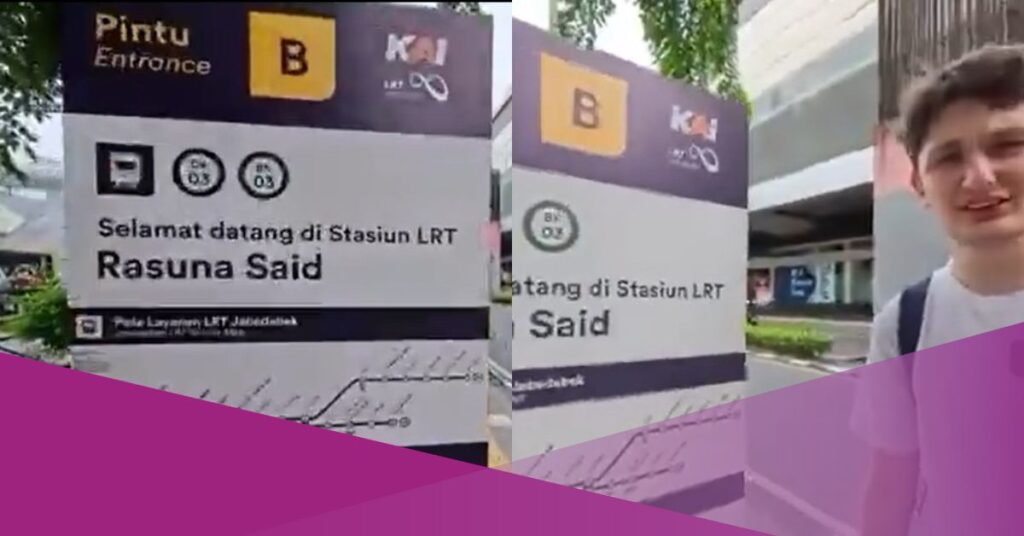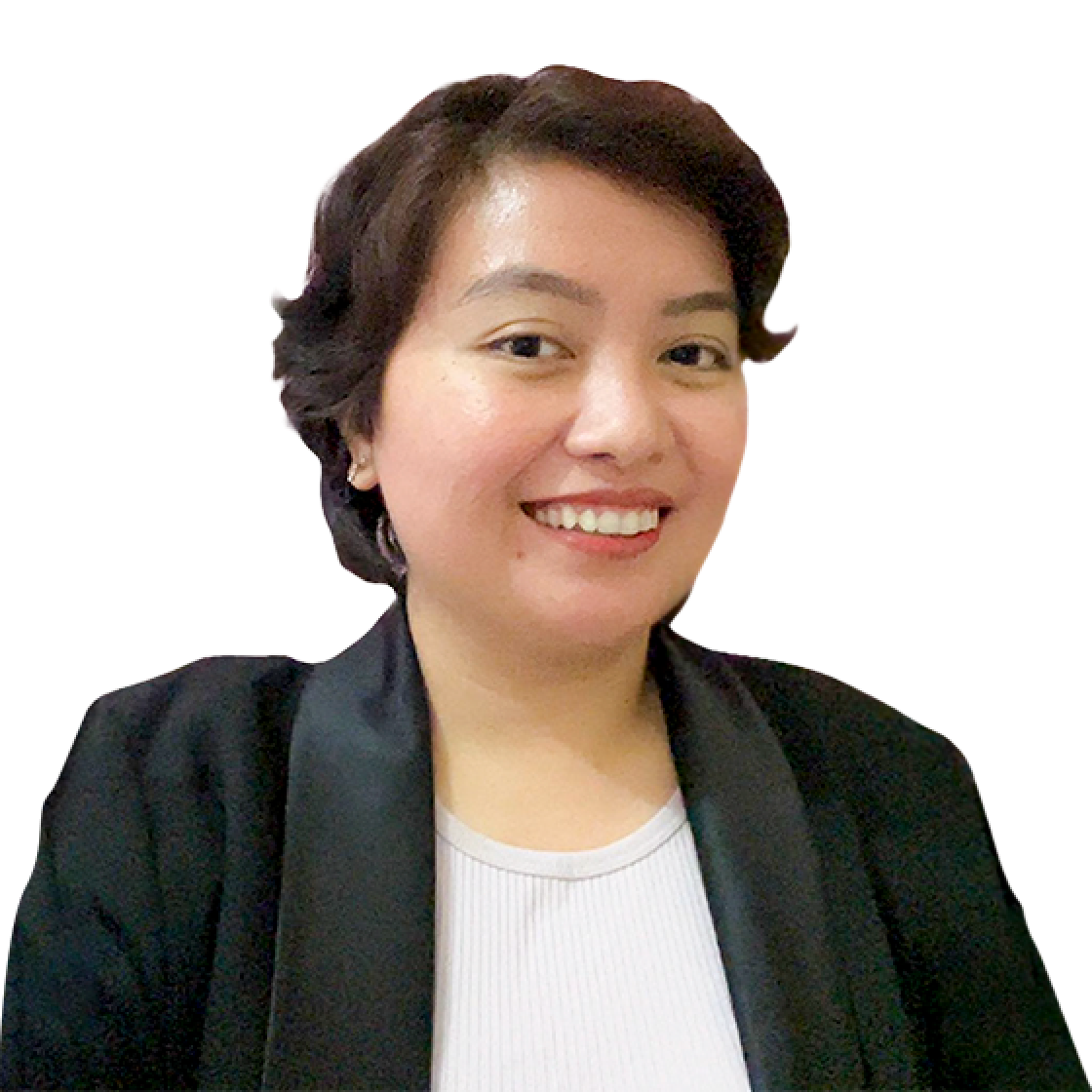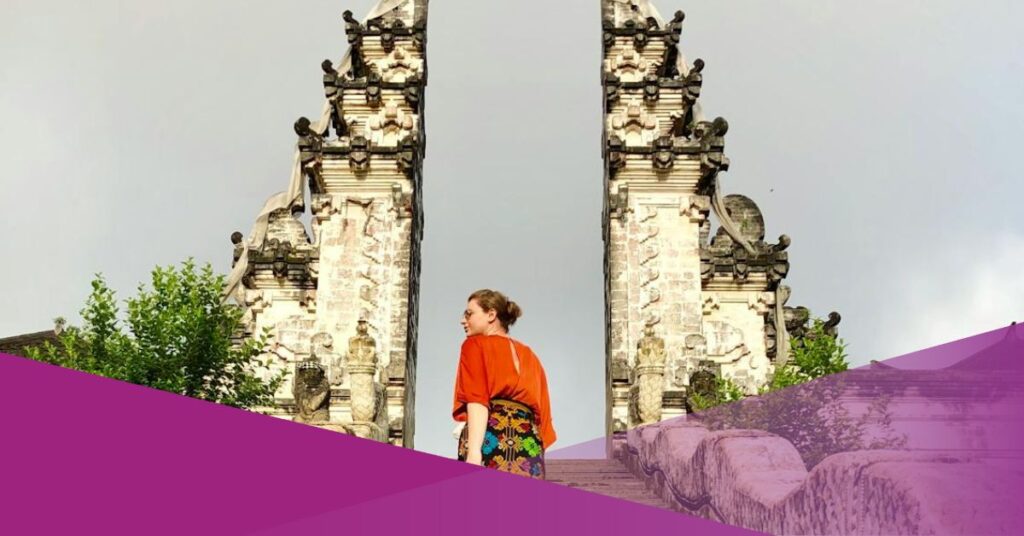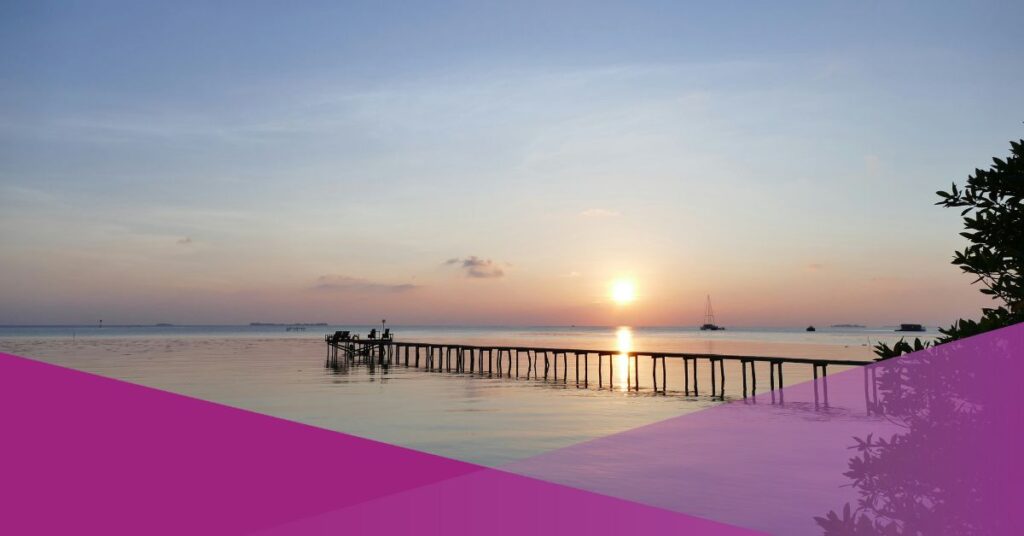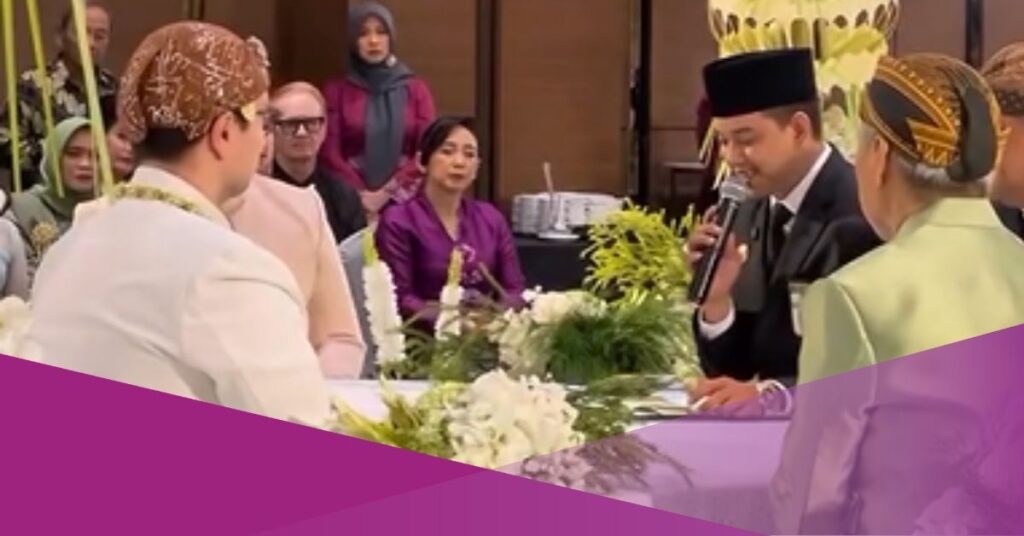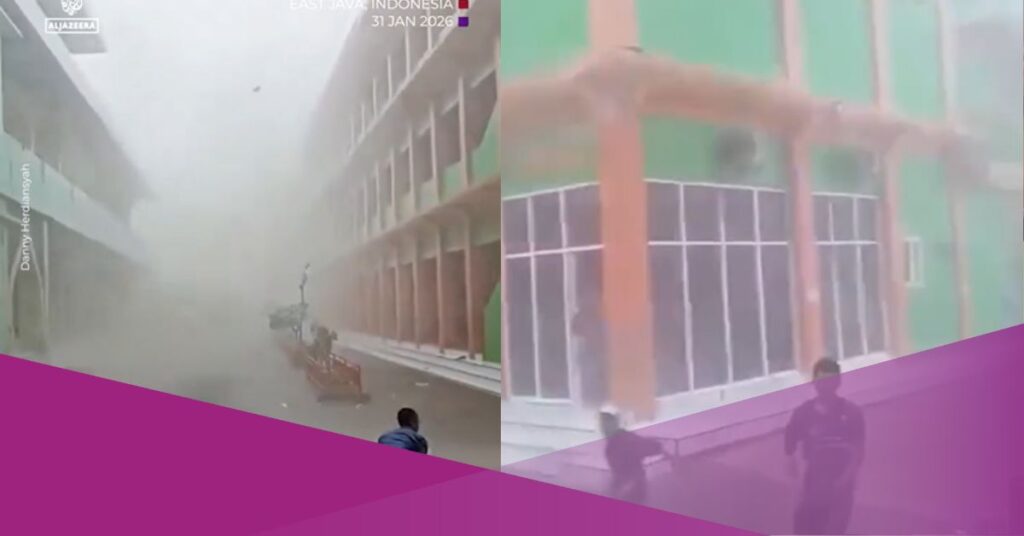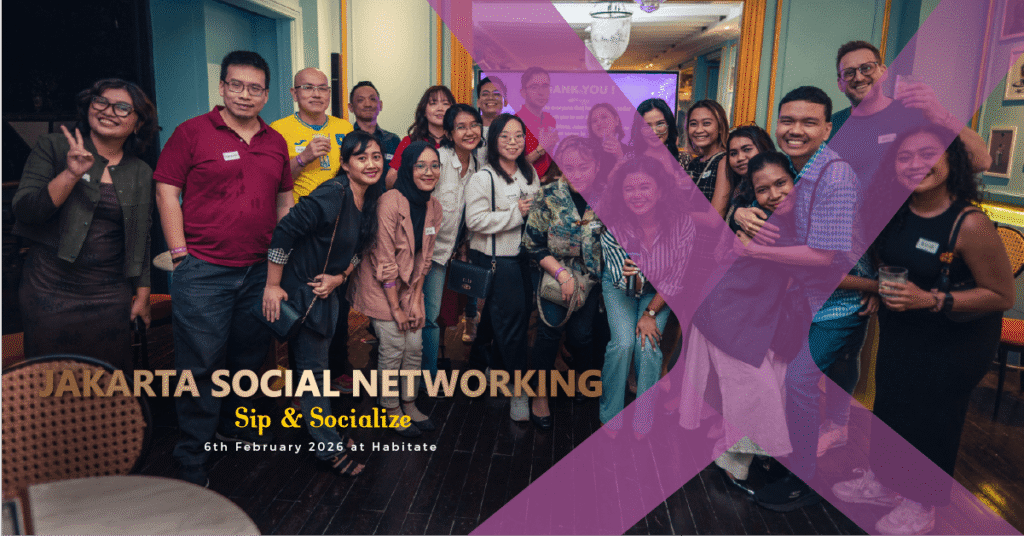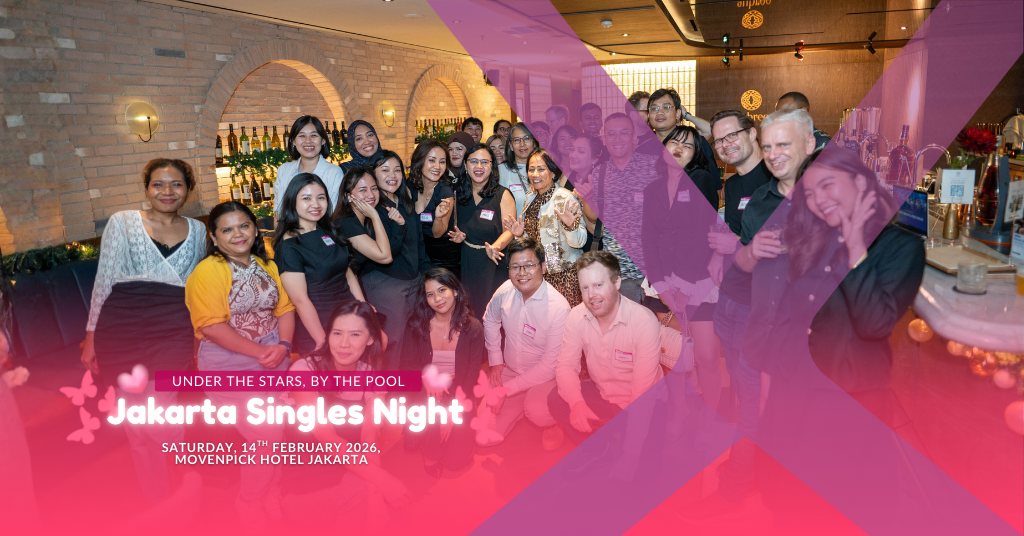A short video taken at the Pahlawan Rasuna Said LRT Station has gone viral after showing a foreign visitor struggling to interpret the station’s name.
The traveller is seen staring at the sign with a puzzled expression, trying to make sense of the word “Said,” which in English is understood as the past tense of “say.”
To someone unfamiliar with Indonesia’s national heroes, the name appears grammatically odd, almost as if the sign is meant to be read as a sentence.
The person filming, likely a local commuter, seems amused as the foreigner continues analysing the sign, not realising that Rasuna Said refers to Hajjah Raden Ajeng Rasuna Said, a prominent Indonesian freedom fighter and a key advocate for women’s rights.
Her name is widely used across Jakarta, including on major roads and this newly developed LRT station, as part of Indonesia’s effort to honour national figures.
The video highlights a relatable cultural mix-up that often occurs in multilingual public spaces.
While the moment is humorous, it also underscores how historical names in everyday infrastructure can lead to unexpected misunderstandings for visitors, turning a simple station sign into a brief lesson in Indonesian history.
Background of Rasuna Said
She came from a Minangkabau family known for its fighting spirit. From a young age, Rasuna showed great interest in education and politics.
She completed her education at Diniyah Putri in Padang Panjang. There, she gained knowledge about Islam and the national spirit.
This school provided a strong religious education while also teaching nationalism and social awareness. The environment in which she grew up was greatly influenced by nationalism and resistance to colonialism.
West Sumatra, especially Minangkabau, is a region with a strong intellectual and political tradition. Many prominent figures in the national movement came from this region, including Haji Agus Salim and Mohammad Hatta.
The matrilineal culture of Minangkabau, in which descent is traced through the mother’s line, also had a significant influence on her views on the role of women.
In this culture, women play a central role in the family and society. This strengthened her belief that women should also play an important role in political and social struggles.
After completing her education, she decided to enter the world of politics and organisations. She joined the Sarekat Rakyat and later founded the Indonesian Muslim Union (PERMI), an organisation focused on the struggle for independence and women’s empowerment.
